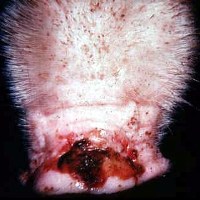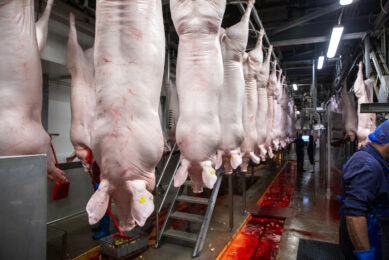Vaccine offers new control options for FMD

A new vaccine, developed in the USA, holds promise for protection against Foot-and-Mouth Disease (FMD).
The vaccine is developed by scientists with the US Department of Agriculture’s Agricultural Research Service (ARS), the Department of Homeland Security (DHS) and a US biopharmaceutical company.
Quickly
The new vaccine works quickly, demonstrating effectiveness within seven days. Tests thus far have shown that vaccinated cattle retain immunity for at least 21 days, but scientists expect that future studies will show that the new vaccine at least matches the six months of immunity provided by current vaccines.
The new vaccine has been tested on cattle and swine, and is equally effective in both species.
Tremendous promise
“This signals tremendous promise,” said ARS Administrator Edward B. Knipling. “Although this is still an experimental vaccine, it has made significant developmental progress, and we are optimistic about its prospects.”
Significantly, as this is the first FMD vaccine produced in the United States, the federal government can plan adequate supplies for the veterinary strategic stockpile.
Molecular-based
The vaccine is the first molecular-based FMD vaccine for cattle, developed by scientists with ARS, the Department of Homeland Security’s Targeted Advanced Development unit (TAD) and GenVec, a biopharmaceutical company based in Gaithersburg, Maryland.
Additional testing is examining the vaccine’s commercial viability and effectiveness against the various serotypes of FMD virus.
Benefits
The new vaccine has many benefits. It is administered in a nonreplicating adenovirus. It does not require expensive, high-containment production facilities, and it can be produced safely in the United States because it can be made without using infectious FMD materials.
In addition, the vaccine also makes it possible for scientists to determine whether an animal found to have FMD antibodies acquired them through vaccination or from infection–an important piece of information because of the trade restrictions associated with using current vaccines.
Presentation
The results of this research effort will be presented on June 2, at the 2007 American Society for Gene Therapy meeting in Seattle, Washington, by Douglas E. Brough, senior director of GenVec’s Vector Sciences.
The DHS TAD unit collaborates with ARS and industry to develop vaccines and biotherapeutic medication for the US Department of Agriculture. ARS is USDA’s principal intramural scientific research agency.
Related websites:
• Agricultural Research Service (ARS)
• United States Department of Agriculture (USDA)
• GenVec
For the latest pig news, subscribe here











